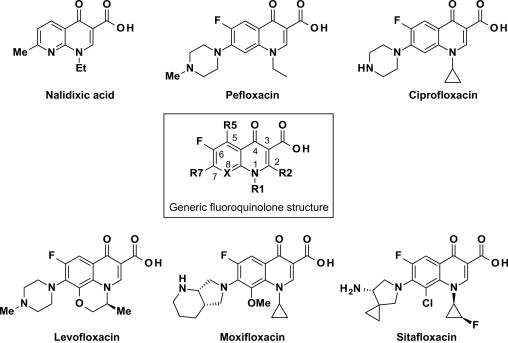Fluoroquinolones slightly increase the risk of valve regurgitation!
- Normal Liver Cells Found to Promote Cancer Metastasis to the Liver
- Nearly 80% Complete Remission: Breakthrough in ADC Anti-Tumor Treatment
- Vaccination Against Common Diseases May Prevent Dementia!
- New Alzheimer’s Disease (AD) Diagnosis and Staging Criteria
- Breakthrough in Alzheimer’s Disease: New Nasal Spray Halts Cognitive Decline by Targeting Toxic Protein
- Can the Tap Water at the Paris Olympics be Drunk Directly?
Fluoroquinolones slightly increase the risk of valve regurgitation!
Fluoroquinolones slightly increase the risk of valve regurgitation! The British Medicines and Health Products Administration reminds us to pay attention to the slight risk of heart valve regurgitation caused by fluoroquinolones.

He also pointed out that for patients with heart valve regurgitation (insufficiency), the benefit and risk should be carefully evaluated, and other treatment options should be considered before using fluoroquinolones.
A retrospective case-control study showed that compared with the use of amoxicillin or azithromycin, the relative risk of oral fluoroquinolones increased by 2 times.
Studies have also shown that ciprofloxacin can increase the degradation of myocardial collagen.
The British Medicines and Health Products Administration pointed out that it is necessary to inform patients, especially those at risk, that they should seek medical attention immediately if the following conditions occur:
Rapid shortness of breath, especially when lying flat in bed;
Swelling of the ankles, feet or abdomen;
New heart palpitations.
In addition to paying attention to the slight risk of heart valve regurgitation, the British Medicines and Health Products Administration also reminded that fluoroquinolones will slightly increase the risk of aortic aneurysm and aortic dissection. Patients at risk of aortic aneurysm also Such drugs should be used with caution.
High-risk patients include patients with family history or previous history of aneurysm, or patients with other risk factors or conditions that are prone to aortic aneurysm and aortic dissection.
Fluoroquinolones also affect the musculoskeletal system and nervous system, the most common being tendinitis and tendon rupture.
Tendon injury (especially Achilles tendon) can occur within 48 hours after the start of fluoroquinolone treatment, but the symptoms and signs of adverse reactions may be delayed for several months after stopping the treatment.
(source:internet, reference only)
Disclaimer of medicaltrend.org



